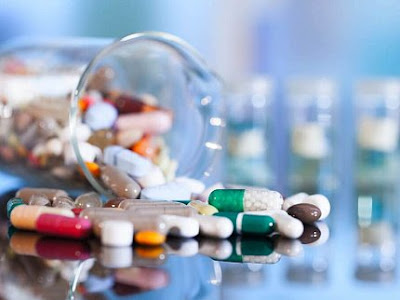Pharmaceutical Drug Delivery: The Future of Innovations and Breakthroughs
 |
| Pharmaceutical Drug Delivery |
Pharmaceutical Drug Delivery has witnessed remarkable
advancements and breakthroughs over the years, revolutionizing the way
medicines are administered and enhancing patient outcomes. With the constant
pursuit of safer, more effective, and targeted treatments, the future of
pharmaceutical drug delivery holds tremendous promise.
One of the key areas driving
innovation in Pharmaceutical
Drug Delivery is the development of novel delivery systems. Traditional
oral tablets and injections are being complemented by cutting-edge technologies
such as nano medicine, implantable devices, and micro needles. These
advancements allow for precise control over drug release, enabling sustained or
pulsatile delivery, and reducing side effects. For example, Nano carriers can
encapsulate drugs, protecting them until they reach the targeted site, while
implantable devices can provide long-term, controlled drug release, eliminating
the need for frequent administration.
Moreover, advancements in
biotechnology and genetic engineering are paving the way for personalized drug
delivery. Tailoring treatments to an individual's genetic makeup, disease
characteristics, and lifestyle factors can optimize therapeutic outcomes.
Pharmacogenomics, for instance, enables the identification of genetic markers
that influence drug response, guiding the selection and dosage of medications. Additionally,
the emergence of 3D printing technology allows for the fabrication of
patient-specific drug delivery systems, further enhancing treatment precision.
In recent years, the field of Pharmaceutical Drug Delivery has
witnessed a significant focus on targeted therapies. The ability to deliver
drugs directly to the site of action minimizes systemic exposure, reduces
toxicity, and improves drug efficacy. Targeted drug delivery systems utilize
various strategies, such as surface modification with ligands that selectively
bind to specific receptors on diseased cells or tissues. This approach holds
immense potential for treating conditions like cancer, where precision is
critical to sparing healthy cells and maximizing therapeutic impact.
Advancements in digital health technologies
are also influencing the future of pharmaceutical drug delivery. Connected
devices, wearable sensors, and smartphone applications enable real-time
monitoring of patient adherence and response to medications. These technologies
facilitate personalized dosing adjustments and early detection of treatment
inefficacies or adverse events, promoting better patient management and
improved outcomes.
Furthermore, the integration of
artificial intelligence (AI) and machine learning in Pharmaceutical Drug Delivery is revolutionizing treatment
optimization. AI algorithms can analyze vast amounts of patient data, including
medical history, genetics, and environmental factors, to generate personalized
drug delivery strategies. This approach assists healthcare professionals in
making informed decisions, predicting treatment responses, and identifying
potential drug-drug interactions or adverse effects.
By harnessing the power of advanced
technologies, personalized medicine, targeted therapies, and digital health
solutions, pharmaceutical drug delivery is poised to transform the way we treat
diseases, improving patient outcomes, and revolutionizing healthcare as we know
it.



Comments
Post a Comment